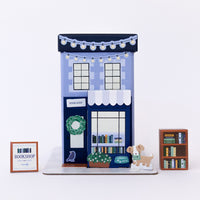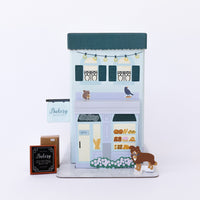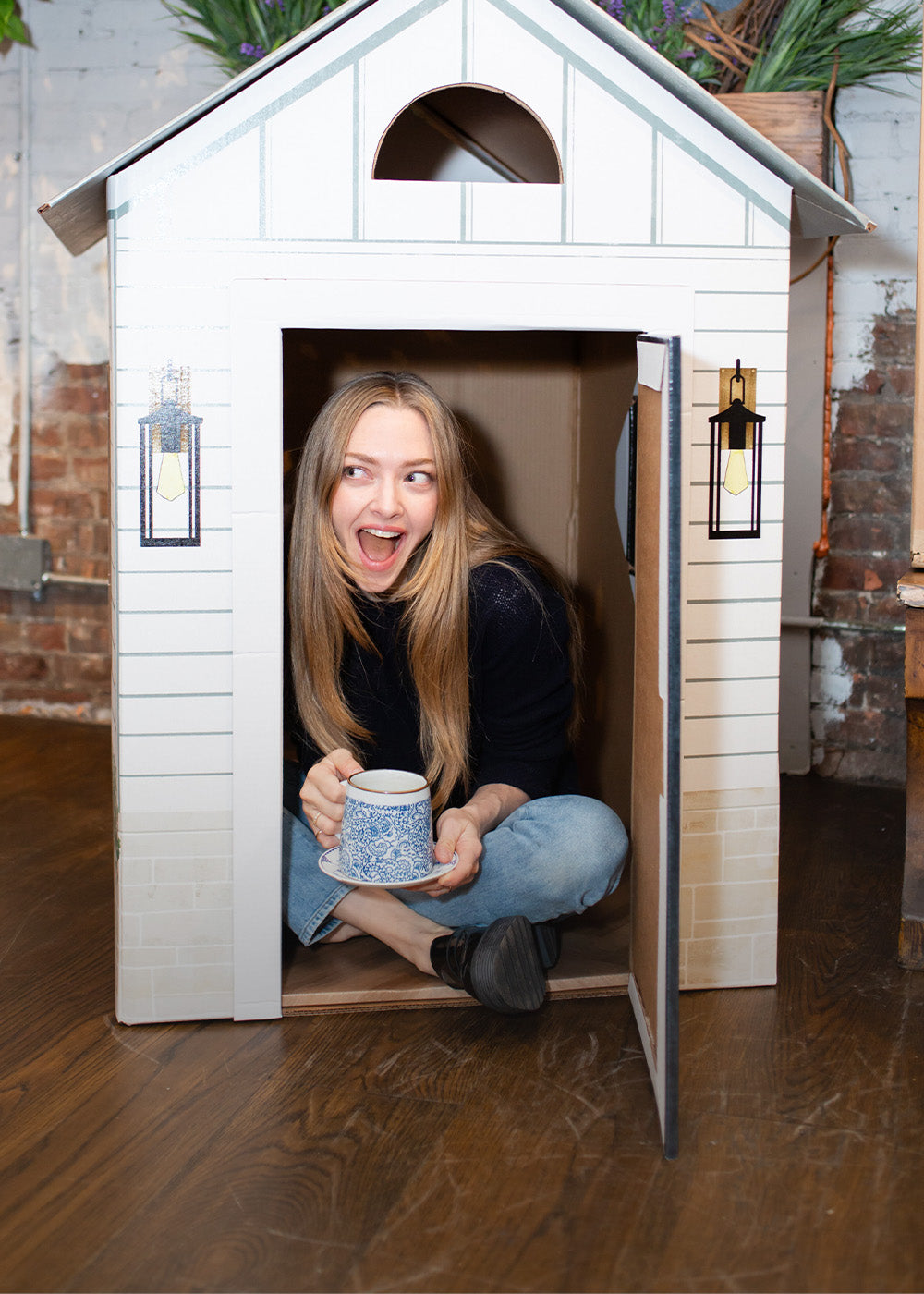We had the chance to connect with Kelly Gordon, licensed clinical social worker and the owner of Embrace Wellness, a mental health private practice where she focuses on family-centered therapeutic approaches for children and adolescents, about all thing's playtime, including her tips for caregivers on cutting down on screen time to focus on imaginary play. Check out our convo below!
Make It Cute: Can you share your thoughts on why children should engage in imaginary play?
Kelly: Imaginary play is helpful for children’s development in many different ways; cognitively, socially, emotionally, and physically. Imaginary play is a wonderful venue for allowing children to act out feelings, and situations, and build self-reflection. Imaginary play nurtures children’s natural curiosity. It lets their creativity shine, allowing them to create stories and characters. This helps them build problem-solving and critical thinking skills, allowing them to show innovative thinking while practicing communication skills. It supports their fine and gross motor skills while manipulating different activities, and language skills as they create narratives. It allows children to role-play and collaborate, building social skills and conflict resolution. It helps build responsibility as they explore and experiment at their own pace. As they encounter challenges, imaginary play helps them understand and regulate their emotions in fun, controlled ways. Storytelling in imaginary play can allow cultural elements that build children’s understanding, empathy, and appreciation of diversity. Imaginary play is a safe space for children to express themselves in different ways, this allows them to take initiative, make their own choices, and have control, helping them build self-confidence and independence.
3 Tips for Families to Cut Down on Tech Time
Make It Cute: What are three tips for families looking to cut down on tech and focus on open-ended imaginary play for their kids?
Kelly:
- Join in, without agenda. Allow your child to take the lead with the narrative. Be fully engaged during the time together, finding joy and connection together. Ask open-ended questions to support them in storytelling, such as “Oh wow, what are they going to do next?”
- Model this behavior. You can set times during the day when everyone in the family is off screens. You can set places in the house in which screens are not allowed. This action can allow time for imagination and play together as a family.
- Provide open-ended toys, allowing imagination and supporting creativity, such as blocks, dolls, art supplies, dress-up clothes, and playhouses.
Make It Cute: How can kids use playhouses to expand their imaginations?
Kelly: Playhouses are great items for helping children express their imagination and creativity. They create a location for children to practice storytelling. Children can work independently with a playhouse, creating narratives and building self-confidence. They can invite friends, siblings, and parents and practice cooperative play, role-playing, collaboration, communication, and teamwork. Playhouses are safe spaces for children to fully express themselves and their feelings. They also allow life skills to be developed, for instance, making food in the play kitchen, cleaning, and pretending they are engaging in daily routines. Through art supplies and accessories, playhouses can be created into whatever children can imagine.

Make It Cute: Can you tell us a little bit about yourself, your professional background, and your work with children and families?
Kelly: I am a licensed clinical social worker and the owner of Embrace Wellness, which is my mental health private practice, where I focus on family-centered therapeutic approaches for children and adolescents struggling with mood disorders and/or trauma exposure. I am trained in multiple therapeutic modalities, including Circle of Security® ParentingTM Child Parent Psychotherapy, child-centered play therapy, infant/ early childhood mental health, cognitive behavioral therapy, perinatal mood disorders, Eye Movement Desensitization and Reprocessing (EMDR) Therapy, and trauma-informed yoga. I am a Certified Supervisor for Clinical Social Workers in Delaware and an advisory board member for the Delaware Psychological Association. I was named Coastal Style Magazine’s 2020 Best of Sussex County Mental Health Professional and named a 2021 Delaware Business Times 40 Under 40 Professional in Delaware.
To connect with Kelly, visit www.embracewellness.life or follow her on Instagram @kellygordonlcsw.









